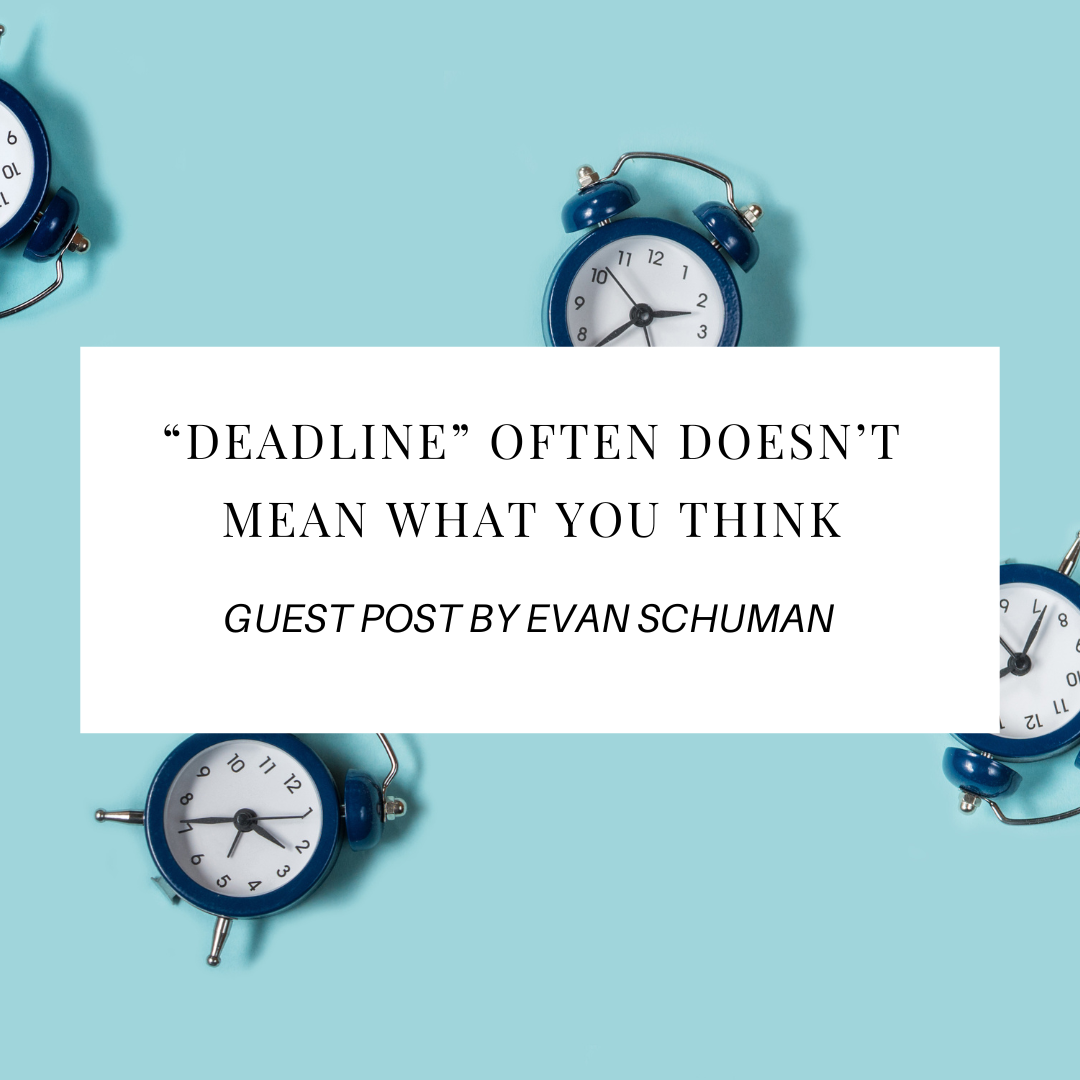Guest Post: “Deadline” in PR often doesn’t mean what you think it means

This article is being posted by Escalate PR on behalf of Evan Schuman, journalist for CIO, CSO, ComputerWorld, Dark Reading, and many other outlets.
Per Evan: “Just to be clear, I can’t recall anyone at Escalate PR ever pushing the deadline question, but it is one that I get asked about 20 times a week.”
One of my biggest pet peeves is when people ask me about “deadline.” That may seem odd that a tech journalist would have a problem with that word and yet I do. It might seem courteous and professional to ask for that information, but most media relations professionals are using the wrong word to ask for what they need.
There is a lot to unpack here. To journalists, the word “deadline” means a day and time set by their editor for when they need to file the story.
I will first stress that most of the pieces I work on these days–and this is true for many of my colleagues–do not have a deadline. The so-called deadline is literally ASAP (as soon as possible). More on ASAP in a moment.
But on those rare pieces (mostly features) that have been assigned a deadline, that is almost universally not the information you want. It is usually irrelevant to you.
For example, there is a recent feature I did for Computerworld on GenAI crawlers. I was assigned the story about the third week of March and I was given a deadline of May 1. As it happened, I finished the reporting and the writing and filed that story about April 8.
If I happened to be talking with you in late March and said that I was working on that piece, if you had asked what my deadline was, I might have just reflexively told you: May 1.
Not only would that information not have helped you, it might have easily hurt your chances of getting your client quoted. Lesson one: Ask for what you want/need and don’t use a term that could mean many different things.
On any story, a reporter goes through three phases: research/reporting; writing; and filing the story and waiting for it to get through the editing queue.
What PR people typically want to know is: When will you wrap up the reporting phase? They want to ask that because that tells them how much time they can give their clients.
Unfortunately, that doesn’t work for a few reasons:
As any interrogator will tell you, you can never get a source to tell you something that they don’t know. And when I start working on a story, I have zero idea when that reporting will be done.
The reporting will close (sort of–more on that in a moment) when the reporter believes they “have enough” information to tell that story.
The first thing I do when I start working on a story is to blast a message to as many potential sources as I can, via email, LinkedIn, Profnet, Qwoted, mentioning it to everyone I talk with, etc.
Obviously, I have no idea who will get back to me and I certainly don’t know when they will get to me and I have absolutely no idea what they will tell me when they get back to me.
And even if someone gets back to me and says something powerful, then I have to go through the process of requesting an interview. (Just last week, someone pitched me a story and it was great and my editor signed off and then I asked for an interview and they got back to me with an interview date that was–and I am not making this up–two months in the future.)
And until the interview happens, I don’t know for certain if I will get anything usable from it.
Once you realize all of that, it becomes clear that I have nothing useful to tell you about the time frame–other than the dreaded but accurate ASAP.
Instead of asking me for a deadline, instead offer a timeframe, as in “My client won’t be able to look at it until 4 PM or Thursday or next week.” That is slightly more useful as it might allow me to give you some meaningful guidance.
Then again, not really. Another example: I am working on a story about XYZ. You ask for a deadline and I tell you something I dreamed up. I might say that I want to wrap up the reporting by Friday.
But let’s say that your client can’t reply until Monday, but the client’s reply is pure gold. I look at it and say “Whoa! This is a point that no one made and the source’s quotes are perfect.” Even if I had already filed the story, I might go to my editor and ask for the story back and I will say why.
In other words, my guidance might be dead-wrong because I don’t know what thoughts your client will ultimately share.
So you can start to see why asking me for a “deadline” when I have just started working on a story is pointless. If you instead focus on telling your client “the sooner you can reply, the better your chances will be,” you will be far better off.
I can, however, offer you some clues. If I say that it is a breaking news story, that typically means that we want to publish it within a few hours and definitely that day. But there are always exceptions depending on the particulars.
